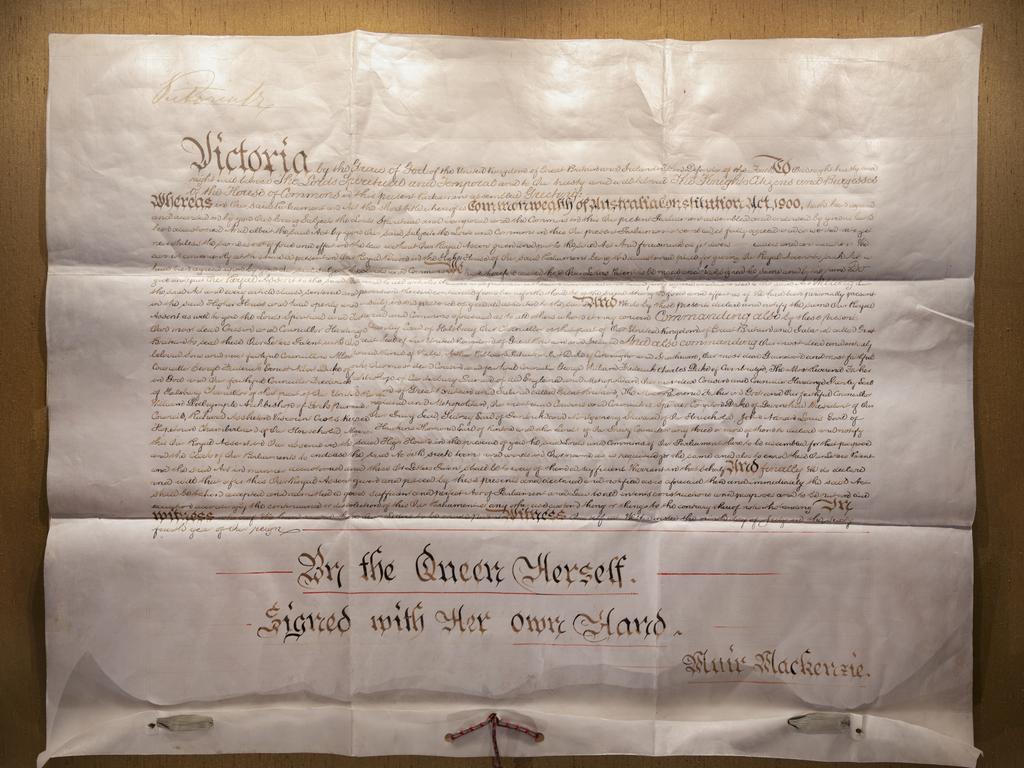‘Shocking’ racist past simply a reflection of the time

Talk of removing Barton’s statue and renaming Griffith and Deakin universities; all are now in the mix. But such talk is misguided, making sacrificial lambs of long-dead politicians when the real spotlight should be directed at us.
Something fundamental is being missed. No one can disagree that the racial sentiments of our early statesmen are unacceptable today. Still, it is odd to condemn our democratic leaders for acting on overwhelming majority opinion.
That is what democracies do, and will keep doing. Of course, this does not make the “truth” any easier to swallow; it may even make it more unsettling. Our elected leaders reflect us.
We need not stop with Barton, Griffith or Deakin. We could reconsider public recognition of Henry Bournes Higgins, the progressive liberal whose famous judgment in the Harvester Case set the standard for the basic wage. Then there is Vida Goldstein, the great suffragist and first woman to stand for national parliament. Both supported the principle of White Australia. In fact, almost every white Australian did at the time of Federation.
All of this has the feel of what French historian Marc Bloch called “the mania for making judgments”, without proper context or explanation. This is a bad way of understanding history.
It invites factual inaccuracy, confuses consequences with intention and commits the fallacy of holding historical figures against the standards of the present. It is arbitrarily charging people for the crime of being born at the wrong time.
The assertion made recently by Deakin’s own great-grandson that Deakin “was responsible, more than virtually anyone else, for policies designed to demolish Aboriginal Australia” is plainly untrue. Deakin’s views on Aboriginal Australians, however shocking they appear today, not only reflected the consensus of the time, but were in fact more liberal than most.
This latter point makes the recent attack on him doubly strange, as without his influence in the Victorian and commonwealth parliaments, government policies would have been more prejudiced than they were, and his liberal influence on our political culture has assisted in bringing us into a more enlightened time.
We even have the benefit of Deakin’s own words. He never intended to “eliminate” the Aboriginal population, nor did he believe they threatened the White Australia policy. “I need scarcely tell you that no such thought had ever crossed my mind,” he wrote in 1904. “I had expressly explained that our policy did not involve any hostility to the races which we seek to exclude, and certainly indicated no antagonism to our coloured fellow subjects of the empire.” With regard to Aboriginal Australians specifically, he believed they “had even greater claims upon us”.
This is not to exculpate past wrongdoings. The Victorian Aboriginal Protection Act 1886, reluctantly passed through parliament by Deakin, had devastating consequences for affected families. These amendments formalised and accelerated the practice of removing mixed-descent residents (so-called “half castes”) below a certain age from stations and reserves.
The legal distinction between “full bloods” and “half castes” was a made-up distinction with terrible consequences. Unfortunately, it was widely accepted at the time and popular with the Victorian public. The changes were recommended by the Board for the Protection of Aborigines, and it was Deakin who excised some of the more draconian clauses after protestations from local Kulin leaders.
Deakin’s description of the 1886 Act as “not a government bill” but a “bill of the board” suggests an unease at the laws. He justified the changes on the grounds of financial prudence by making mixed-descent individuals economically independent.
This was a well-intentioned if misguided argument, but there is no evidence to suggest it was a malign one. The evidence suggests Deakin had great sympathy for the plight of Aboriginal Australians. He played an instrumental role in supporting the Coranderrk Aboriginal reserve in south-central Victoria, with the objective of giving Coranderrk residents a greater say in the running of the station.
Like most Australians of his time, Deakin believed the Aboriginal population to be in terminal decline. This was a function of what Australians were observing across the 19th century, and supported by “scientific” theories of race, which perpetuated false arguments in favour of Anglo-Saxon superiority.
Academics at Deakin University have described students as “shocked” at the former PM’s prediction that “Australia will be a white continent with not a black or even dark skin among its inhabitants”. Without context, of course it is shocking. The important historical question is not why Alfred Deakin said it, but why so many Australians agreed with it.
History is complex. Tolstoy called it “the unconscious swarmlike life of mankind”. What he meant was that individuals are often moved by deeper, underlying forces, more than they realise. The great challenge of history is to understand those forces and their influence on us, not just to condemn those who fall prey to them.
Andrew Kemp is a Melbourne writer. This is from a forthcoming article in Essays for Australia.







Our constitutional founders are on trial. Edmund Barton, Samuel Griffith and, most recently, Alfred Deakin are under the spotlight for their contribution to Australia’s racist past.